Alfa Romeo Junior vs Peugeot 308 - Diferencias y precios comparados
Compara potencia (280 HP vs 195 HP), maletero y precio (31000 € vs 34700 €) de un vistazo. Descubre ahora cuál es la mejor elección para ti – Alfa Romeo Junior o Peugeot 308.
Costes y consumo
En términos de economía diaria, ambos modelos muestran contrastes interesantes.
Alfa Romeo Junior tiene una ventaja ligeramente en precio: parte desde 31000 €, mientras que el Peugeot 308 cuesta 34700 €. La diferencia es de unos 3722 €.
También se aprecia una diferencia en el consumo: el Peugeot 308 gasta 2.30 L y es claro más eficiente que el Alfa Romeo Junior, que consume 4.80 L. La diferencia es de unos 2.50 L cada 100 km.
En consumo eléctrico, la ventaja es para el Alfa Romeo Junior: con 15.10 kWh cada 100 km, es apenas perceptible más eficiente que el Peugeot 308, que necesita 15.60 kWh. La diferencia ronda los 0.50 kWh.
En autonomía, el Peugeot 308 ofrece un rendimiento ligero mejor: alcanza hasta 450 km, unos 40 km más que el Alfa Romeo Junior.
Motor y rendimiento
Potencia, par motor y aceleración dicen mucho sobre la experiencia de conducción. Aquí se ve cuál ofrece más dinamismo.
En cuanto a potencia, el Alfa Romeo Junior tiene una ventaja claramente perceptible: 280 HP frente a 195 HP. Eso supone un aumento de unos 85 HP CV.
En aceleración de 0 a 100 km/h, el Alfa Romeo Junior es distinto más rápido: completa el sprint en 5.90 s, frente a 7.60 s del Peugeot 308. Es aproximadamente 1.70 s más veloz.
En velocidad máxima, el Peugeot 308 es casi imperceptible superior – alcanza 225 km/h, mientras que el Alfa Romeo Junior se queda en 206 km/h. La diferencia es de unos 19 km/h.
También hay diferencias en el par motor: el Alfa Romeo Junior empuja en pequeña medida con 345 Nm frente a 300 Nm. La diferencia ronda los 45 Nm.
Espacio y practicidad
Ya sea coche familiar o compañero diario – ¿cuál ofrece más espacio, flexibilidad y confort?
Plazas: el ofrece más asientos – frente a .
En peso en vacío, el Alfa Romeo Junior es ligero más ligero – 1380 kg frente a 1453 kg. La diferencia ronda los 73 kg.
En capacidad de maletero, el Alfa Romeo Junior ofrece ligero más espacio – 415 L frente a 412 L. La diferencia es de unos 3 L.
En capacidad máxima de carga, el Peugeot 308 es casi imperceptible mejor – hasta 1323 L, unos 43 L más que el Alfa Romeo Junior.
En capacidad de carga útil, el Peugeot 308 un poco se impone – 503 kg frente a 420 kg. La diferencia es de unos 83 kg.
¿Quién es el ganador del duelo?
En general, el Alfa Romeo Junior se muestra apenas por delante y se lleva el título de DriveDuel Champion.
Destaca por su equilibrio general y por ser el compañero más versátil en el día a día.
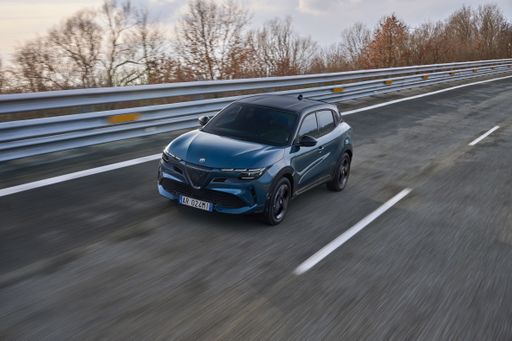 @ Alfa Romeo / Stellantis Media
@ Alfa Romeo / Stellantis Media
Alfa Romeo Junior
Costos y consumo
Ver análisis detallado
Motor y rendimiento
Ver análisis detallado
Dimensiones y carrocería
Ver análisis detallado
Alfa Romeo Junior
El Alfa Junior sigue siendo esa mezcla perfecta entre elegancia italiana y carácter deportivo, capaz de robar miradas en cualquier paseo urbano. Si buscas un clásico con alma para disfrutar curvas y presumir en las concentraciones, este pequeñín te hará sonreír cada vez que gires la llave.
detalles @ Alfa Romeo / Stellantis Media
@ Alfa Romeo / Stellantis Media
 @ Alfa Romeo / Stellantis Media
@ Alfa Romeo / Stellantis Media
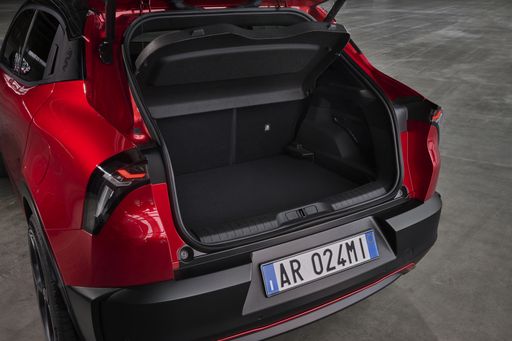 @ Alfa Romeo / Stellantis Media
@ Alfa Romeo / Stellantis Media
Peugeot 308
El Peugeot 308 es un compacto elegante y refinado que combina el estilo francés con una conducción ágil y confortable. Perfecto para quien quiere presencia en la ciudad sin renunciar a sensaciones al volante, con un interior cuidado que eleva cada trayecto y un guiño chic que no pasa desapercibido.
detalles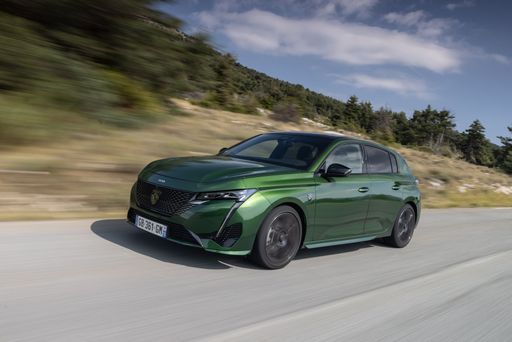 @ Peugeot / Stellantis Media
@ Peugeot / Stellantis Media
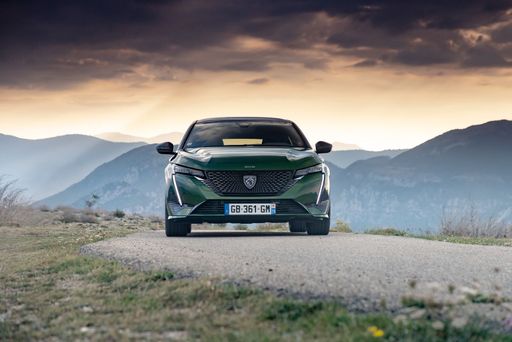 @ Peugeot / Stellantis Media
@ Peugeot / Stellantis Media
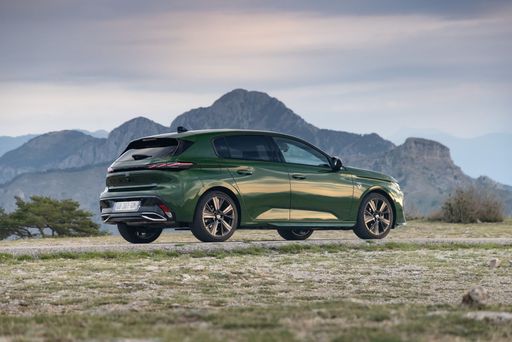 @ Peugeot / Stellantis Media
@ Peugeot / Stellantis Media
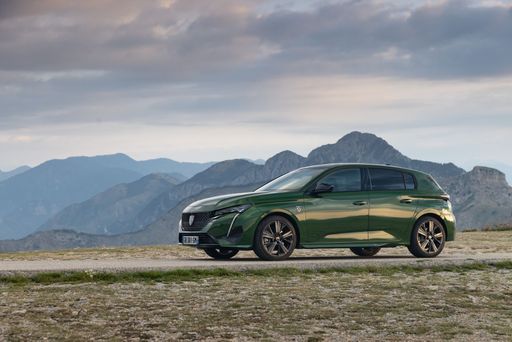 @ Peugeot / Stellantis Media
@ Peugeot / Stellantis Media
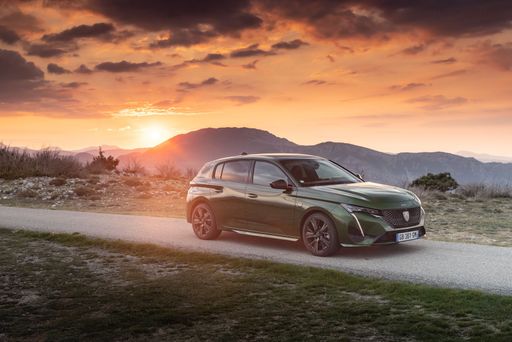 @ Peugeot / Stellantis Media
@ Peugeot / Stellantis Media
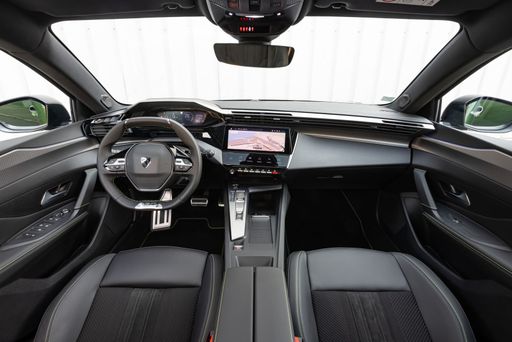 @ Peugeot / Stellantis Media
@ Peugeot / Stellantis Media
 @ Alfa Romeo / Stellantis Media
@ Alfa Romeo / Stellantis Media
|
 @ Peugeot / Stellantis Media
@ Peugeot / Stellantis Media
|
|
|
|
Costos y consumo |
|
|---|---|
|
Precio
31000 - 49300 €
|
Precio
34700 - 50500 €
|
|
Consumo L/100km
4.8 - 5.4 L
|
Consumo L/100km
2.3 - 5 L
|
|
Consumo kWh/100km
15.1 - 17.5 kWh
|
Consumo kWh/100km
15.60 kWh
|
|
Autonomía eléctrica
344 - 410 km
|
Autonomía eléctrica
78 - 450 km
|
|
Capacidad de la batería
0.4 - 51 kWh
|
Capacidad de la batería
0.40 kWh
|
|
co2
0 - 119 g/km
|
co2
0 - 129 g/km
|
|
Capacidad del tanque
44 - 45 L
|
Capacidad del tanque
42 - 52 L
|
Dimensiones y carrocería |
|
|---|---|
|
Tipo de carrocería
SUV
|
Tipo de carrocería
Hatchback
|
|
Asientos
5
|
Asientos
5
|
|
Puertas
5
|
Puertas
5
|
|
Peso en vacío
1380 - 1689 kg
|
Peso en vacío
1453 - 1749 kg
|
|
Capacidad del maletero
340 - 415 L
|
Capacidad del maletero
314 - 412 L
|
|
Longitud
4173 mm
|
Longitud
4367 mm
|
|
Anchura
1781 mm
|
Anchura
1852 mm
|
|
Altura
1505 - 1538 mm
|
Altura
1438 mm
|
|
Capacidad máxima del maletero
1205 - 1280 L
|
Capacidad máxima del maletero
1258 - 1323 L
|
|
Capacidad de carga
390 - 420 kg
|
Capacidad de carga
430 - 503 kg
|
Motor y rendimiento |
|
|---|---|
|
Tipo de motor
Eléctrico, Híbrido ligero gasolina
|
Tipo de motor
Híbrido ligero gasolina, Diésel, Híbrido enchufable, Eléctrico
|
|
Transmisión
Automática
|
Transmisión
Automática
|
|
Detalle de transmisión
Caja de reducción, Automático de doble embrague
|
Detalle de transmisión
Automático de doble embrague, Caja automática, Caja de reducción
|
|
Tipo de tracción
Tracción delantera, Tracción total
|
Tipo de tracción
Tracción delantera
|
|
Potencia HP
136 - 280 HP
|
Potencia HP
131 - 195 HP
|
|
Aceleración 0-100km/h
5.9 - 9.1 s
|
Aceleración 0-100km/h
7.6 - 10.6 s
|
|
Velocidad máxima
150 - 206 km/h
|
Velocidad máxima
170 - 225 km/h
|
|
Par motor
230 - 345 Nm
|
Par motor
230 - 300 Nm
|
|
Número de cilindros
3
|
Número de cilindros
3 - 4
|
|
Potencia kW
107 - 207 kW
|
Potencia kW
96 - 144 kW
|
|
Cilindrada
1199 cm3
|
Cilindrada
1199 - 1598 cm3
|
General |
|
|---|---|
|
Año del modelo
2024 - 2025
|
Año del modelo
2025
|
|
Clase de eficiencia de CO2
A, C, D
|
Clase de eficiencia de CO2
C, D, B, A
|
|
Marca
Alfa Romeo
|
Marca
Peugeot
|
¿Qué tipos de tracción están disponibles para el Alfa Romeo Junior?
Disponible con Tracción delantera o Tracción total.
Los precios y datos mostrados son estimaciones basadas en los precios de lista en Alemania y pueden variar según el país. Esta información no es legalmente vinculante.
